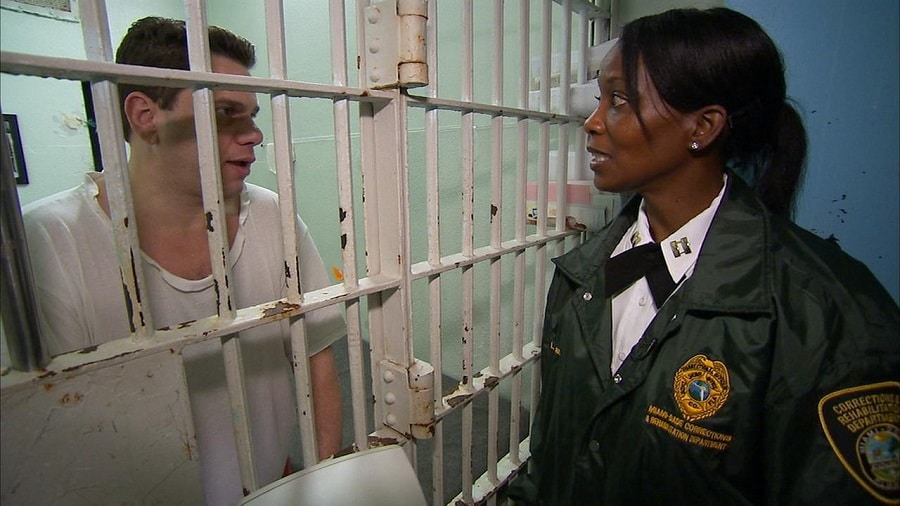Have you ever asked yourself what do correctional officers do? Correctional officers are responsible for enforcing the rules and regulations in jails and prisons, so as to keep the order. For instance, they oversee individuals who have been arrested, are awaiting trial, or have been sentenced to spend time in reformatory, jail, or prison. Overall, the correctional officer job description involves supervising all of the daily activities of inmates. The officer does this in order to make sure the inmates are obeying the regulations and finishing their assigned tasks. Today, we’re going to look a bit more closely at the job of a correction officer, by focusing on his or her main duties, work environment, and so on.
What Do Correctional Officers Do?
Depending on the work environment, correctional officers oversee people who are sentenced to a year or less in county jails, or more than a year in state and federal prisons. They ensure optimal security to prevent disturbances, assaults, violent outbreaks, or inmate escapes. Now, let’s see what the main duties of a correctional officer are. That way, we can clearly answer the question “What do correctional officers do?”.
Being a Correctional Officer: Main Duties
- Monitor conduct of inmates: This mainly involves supervising their activities and making sure they’re in accordance with the rules of the prison or jail.
- Inspect doors, window bars, locks, and conditions within facilities: This is done to ensure they are no signs of tampering or misconduct.
- Search inmates and their cells: The reason why correctional officers do this is to look for items that are prohibited, including weapons and drugs.
- Take prisoners into custody and book into prison.
- Screen inmates’ visitors and incoming mail: This ensures that no contraband or dangerous items will reach the inmates.
- Maintain records and reports on the conduct of inmates.
- Escort prisoners through transportation within and outside of the prison: This includes going to medical facilities, visiting rooms, or court rooms.
- Serve meals, distribute personal hygiene products, and assign work duties to inmates.
- Conduct thorough safety, fire, and sanitation inspections: Through these inspections, correctional officers ensure everything is according to standards.
- Assist with the rehabilitation, counseling, and educational opportunities of offenders.
Where Can You Find a Job as a Correctional Officer?
Now that we’ve explained what do correctional officers do, we though we would also mention how you can get a job as one, for people who would like to pursue this career. Most correctional officers get a job in federal, state, and local prisons. Others may find employment in private companies. These are companies that offer correctional services to various prisons and jails.
What Is the Work Environment Like?
Working in these institutions and completing the duties mentioned above can be stressful and dangerous for a correctional officer. Each year, correctional officers are injured in confrontations with inmates. In fact, the profession has one of the highest rates of nonfatal on the job injuries. This happens despite the fact that precautions are taken to avoid these occurrences. If inmates violate the rules or become violent, correctional officers are also responsible with consulting with law enforcement authorities that are investigating the crime.
Extra Duties to Be Aware of
Correctional officers have no responsibility of taking on law enforcement duties outside of their place of employment. Still, they may have to perform some of the same duties as law enforcement officers. If necessary, officers have the right to restrain inmates with weapons, handcuffs, leg irons, or by physical force. As a result, correction officers must possess strong judgment, critical thinking skills, interpersonal skills, self discipline, negotiation skills, and physical strength. All of these things will help them protect themselves and other inmates when disputes arise.
Summing It All Up
Being a correctional officer is definitely not an easy job. We hope we managed to show that in today’s article. There are many things to consider before starting a career as a correctional officer, such as where you’ll be working, who you’ll be working with, what the work environment will be like, and whether or not you’ll be capable of withstanding a large amount of stress. Correctional officers protect inmates, but they also have to learn how to protect themselves when working in prisons and jails.
Image Source: here.













Leave a Reply